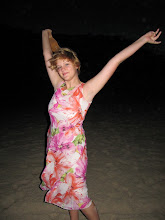I was actually going to close this blog, now that I have returned from Cambodia, but I decided to keep it there as a type of diary for when I feel the nostalgia set in. I feel, however, that there is one more post that I need to add to this. My brain-eating parasite.
As many of you who have followed my recent hospitalisation know, I have been seriously ill in hospital with possibly one of the scariest, but coolest-sounding diseases that I could have come back from Cambodia with - a parasite in my brain. It sounds like hollywood fiction, and its rather fitting that this all occurred the weekend after Halloween.
Ive certainly come back with a few stories worth telling, and Ive now told them to all of the hospital staff at Robina hospital as they delt with my migraine, nausea, memory lapses, disorientation, head spins and loss of muscle control.
I went to the doctors to get a certificate to get out of work because I had a headache, but my doctor feared something worse, most likely Dengue Fever. In retrospect, I wish I had dengue instead. They sent me home with a referral letter for the tropical diseases specialist the next day, but warned me that brain cysts could develop and that I may lose my eyesight any second and it wont come back until they treat it. I assure you that every time I so much as had a hair in my eye I started to think 'is this it, am i losing my sight'? Very scary.
Everything was fine, and I had done a sufficient amount of socializing on Sunday with my family, and then coffee and church with friends. That night, bam, I pretty much lost the use of my legs, and it was up to the emergency ward again first thing the next morning. This time, it was to stay.
I was visited by so many wonderful people in hospital - close friends and family. I appreciated it so much, because my company in the Acute Medical Ward were quite literally only 3 people, one who spoke no English but muttered to herself loudly in European languages, and all of these women were very sick, tired and over the age of 70. Not the best company, and I felt that my dignity was sacrificed when it took me about a minutes to go 5 metres on a zimmerframe to get to the bathroom. The parasite aged me.
Fortunately, the doctors were able to quickly and efficiently kill the little bug that I had affectionately nicknamed Gary, and take me in for a few more interesting head-scans before they were sure it had disappeared.
I am home now, and so grateful that the only long-term damage that I will receive is slowed memory, concentration and comprehension, almost like having a low-grade learning disability. The brain parasite could have left me with very severe permanent brain damage, or even killed me, so I am very grateful for the help of the doctors at Robina Hospital to fix me up and send me away with minimal implications.
They say I got this horrible brain-eating parasite from the jungles in Cambodia. I'm just lucky I was back in a place with stronger diagnostics and medical resources when I started showing symptoms. What about the people who LIVE in these jungles? They would get no such treatment, and literally just left there to have their brain painfully eaten alive by a parasite. It really is excruciating.
ps Dont let my story deter you from going to Ratanakiri, Cambodia, to enjoy the jungle and learn about the tribal cultures. I still plan to go back, all things considered. I was sick, but that doesn't mean Cambodia isn't one of the greatest places in the world. Do not be deterred.
